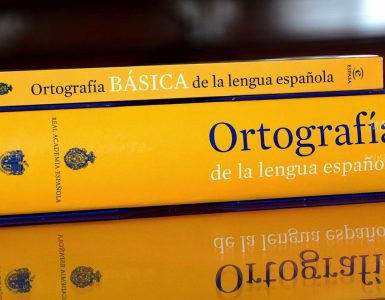Just as expressing ourselves is a necessity, demanding silence or telling others to shut up can sometimes be an even greater necessity. Although this expression is not considered swearing in Spanish, saying it in anger or in an inappropriate tone of voice can be just as offensive as any other insult.
In this article, I will discuss the different ways to say shut up in Spanish that you need to know if you are learning the language. Thus, you will be able to pick up on when someone is not only asking you to be quiet, but if they are doing it in a rude or inappropriate way as well.
Cállate/Cállese – Shut up!
This is the literal translation and most common way of saying shut up in Spanish and although it is not the most formal of all, it is the most direct. How rude it sounds depends on your tone of voice, and it is used equally as much in both Latin America and Spain. As expected, this expression comes from the verb to shut. Callarse is a reflexive verb and is inflected accordingly, depending on whom and how many people you are talking to. Let’s take a closer look:
| Spanish | English |
|---|---|
| ¡Cállese de una buena vez! | Shut up at once! |
| ¡Cállate Karla, no sabes lo que dices! | Shut up Karla, you don’t know what you’re talking about! |
| ¡Cállense, que no escucho lo que dice la radio! | Shut up, I can’t hear what the radio is saying! |
| ¡Que calléis os digo! | I’m telling you lot to shut up! |
Cállate la boca – Shut up the mouth
Unlike cállate, cállate la boca can be a much more blunt and aggressive phrase when asking someone or some group of people to keep quiet. Whether verbal or written, the intentions of the command are clear and much stronger than the usual shut up. The person is required to stop making any noise with his or her mouth, closing it immediately.
| Spanish | English |
|---|---|
| ¡Cállate la boca Francisco! | Shut your mouth Francisco! |
| ¡Cállense la boca que no puedo explicar las clases con tanto ruido! | Shut your mouth, I can’t explain the classes with so much noise! |
It can also be accompanied by really rude words like damn (maldita) or whore (puta) to denote contempt and anger, in this way.
| Spanish | English |
|---|---|
| ¡Cállate la maldita boca de una vez! | Shut your fucking mouth right now! |
| ¡Cállense la puta boca! | Shut your fucking mouth! |
Haz silencio – Be quiet!
Haz silencio is one of the most polite and formal ways of telling someone to be quiet. Since it is a diplomatic language, it is often used in academic and work environments, and even in places like theaters or cinemas, where silence is necessary. Like the previous phrases, its use is universal in all variants of the Spanish language.
| Spanish | English |
|---|---|
| ¡Haz silencio que el bebé está dormido! | Be quiet, the baby is asleep! |
| ¡Martha, haga silencio que no puedo escuchar la película! | Martha, be quiet, I can’t hear the movie! |
| ¡Hagan silencio antes de que llegue el gerente de recursos humanos! | Be quiet before the human resources manager arrives! |
¡Silencio! – Silence!
Short, simple and to the point, ¡silencio! is the most polite and authoritative way to say shut up in Spanish. The tone of voice of this expression is always strong, so if what we want is to impose order and discipline on someone or a group of people, this is the correct expression.
Shhhh – Onomatopoeia
Shhhh is an onomatopoeic word that arose in prehistoric times, when man began to recognize the dangerous animals outside. As they communicated through sounds, to warn other companions that a snake or some other reptile was approaching, they would say shhh imitating the hissing sound that these animals made with their mouths.
In this sense, even cavemen were wary of animals and this word has survived to this day as a way of saying shut up in Spanish. However, depending on how loud and how long we prolong the shhh sound, it could be offensive to the other person. A short, dry and loud shhh is interpreted as shut up, while a long and soft shhh is interpreted as “be quiet, please”.
Cállese la jeta – Shut your trap
This expression, mainly used in Colombia and Venezuela, is a way of saying “shut your mouth” using the Creole slang of those countries. The word jeta comes from the Arabic pico and hocico, so it is a way of saying “close the beak” or “shut up the snout” too.
| Spanish | English |
|---|---|
| ¡Cállese la jeta parce! | Shut your gob, buddy! |
| ¡Cállense la jeta que ya viene mi mamá! | Shut it, my mom is coming! |
In some areas of Colombia, such as the Coast and Santander, cállese is abbreviated using calle’ in this way:
| Spanish | English |
|---|---|
| ¡Calle’ la jeta ñero que nos van a escuchar! | Shut your fucking mouth buddy, they will hear us! |
Telajeta’ – Shut your mouth (abbreviated)
It is exactly the same as the previous expression but abbreviated. Its use can express a certain haughtiness as it quite offensive to silence someone in this way.
Cierra el pico – Close your beak
This way of saying shut up in Spanish is frequently used in all Spanish-speaking countries. It is often heard in the dubbing of cartoons and television programs, so it is subtle, but with character, a way of demanding someone to keep quiet.
| Spanish | English |
|---|---|
| Cierre el pico y no opine. | Close your beak and don’t give any opinions. |
Cállate el hocico – Shut your snout
In Mexico, this is the main phrase for saying “shut up the mouth”. Its use is offensive because the only ones with snouts are animals, so it is as if you want to say to someone “shut the fuck up, you animal”.
¿Por qué no se te callas? – Why don’t you shut up?
It is an interrogative expression that asks the reason for so much noise and is the most polite expression to say to a Spanish-speaking person. It can be as offensive as the others, depending on the tone of voice and facial expression, as saying it with an expression of annoyance or displeasure can be taken as disrespectful by the speaker.
La lechuza – Children’s song ‘The Owl’
For babies and children who do not yet understand orders, there is a very particular way to ask them to be quiet. It is through a song called La Lechuza. This song goes like this:
| Spanish | English |
|---|---|
| 🎵 La lechuza, la lechuza 🎵 | 🎵 The owl, the owl 🎵 |
| 🎵 Hace shhhhh 🎵 | 🎵 It goes shhhhhh 🎵 |
| 🎵 Hace shhhhh 🎵 | 🎵 It goes shhhhhh 🎵 |
| 🎵 Todos calladitos, como la lechuza 🎵 | 🎵 Everybody be quiet, just like the owl 🎵 |
| 🎵 Que hace shhhhh 🎵 | 🎵 That goes shhhhhhh 🎵 |
| 🎵 Que hace shhhhh 🎵 | 🎵 That goes shhhhhhh 🎵 |
It is widely used in schools, kindergartens and any place where children are. So, if you hear this tune, it is because they are asking a child to be quiet without using rude phrases like shut up.
Final thoughts
As we have seen in the course of this article, the different ways of saying shut up in Spanish depend a lot on factors such as tone of voice, easy expression and even body expression, since telling someone to shut up often incites some sort of conflict that can end precariously.
Therefore, it is very important that you understand and use these different expressions with care and consideration, as well as know how to express yourself correctly when you want to ask a Spanish-speaking person to be quiet.










Add comment